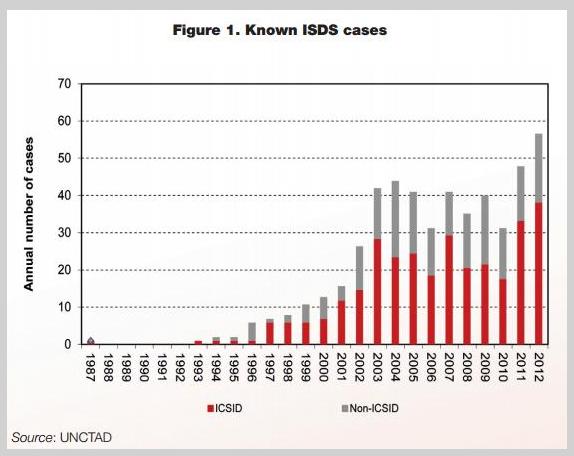The Transatlantic Trade and Investment Partnership (TTIP): Will Governments Agree to Pass Massive Powers to Transnational Capital?
Roger Godsiff MP for Birmingham Hall Green, has tabled a Parliamentary Question asking whether government will reconsider support for the Transatlantic Trade and Investment Partnership trade deal, following the announcement that a tar sands company is suing the American Government under existing trade law after it decided against a massive new tar sands pipeline. He said “I hope that the Prime Minister will reconsider his support for TTIP in the light of this lawsuit” adding that – for instance – TTIP could leave UK taxpayers liable to being sued for billions by fracking companies.
The charge by John Hilary, head of War on Want, and many others is that ‘TTIP elevates transnational capital to a legal status equivalent to that of the nation state’

Two powerful international legal mechanisms are already seen as damaging public health and one, ICSID, appears predominantly to oppress small and relatively poor countries:
- Investor-state dispute settlement (ISDS) is an instrument of public international law, that grants an investor the right to use dispute settlement proceedings against a foreign government
- and the World Bank’s International Centre for Settlement of Investment Disputes, ICSID.
Disputes between government and corporations are dealt with in secret in front of a tribunal. Over 500 known cases have now been filed against over 95 countries:
- Philip Morris sued the Australian government over its plain packaging rules.
- The Swedish corporation Battenfall sued the German government over its decision to phase out nuclear power
- a French firm is suing the government of Egypt over its increase in minimum wage.
- The government of Uruguay amended its legislation on health warnings on cigarette packets and ban on the sale of “light” brands,after Philip Morris filed for ICSID arbitration, claiming the restrictions hurt its business.
ICSID appears to act predominantly on behalf of corporations against small, poorer countries – but has deactivated the following link to this information.
Fifty of the 128 pending cases reveal that multinationals – mainly in the sectors of in the tobacco, finance, insurance, debt instruments, petroleum exploration, exploitation, quarrying, mining, electricity generation, hydrocarbon, oil, gas, nuclear power, food, gold, copper, tourism development and water – are taking cases against the Republic of Chile, Republic of Burundi, Arab Republic of Egypt, Republic of the Philippines, Republic of Peru, Republic of Tunisia, Bolivarian Republic of Venezuela, Grenada, Georgia, Romania, Republic of Slovenia, Plurinational Republic of Bolivia, Republic of Togo, Republic of Ecuador, Ukraine, Republic of Panama, Republic of South Africa, Central African Republic, Republic of Paraguay and a huge twentyfour cases against the Argentine Republic.
Roger Godsiff ends:
“This appalling lawsuit shows exactly why the UK must stay out of trade deals which prioritise the rights of greedy multinationals to make a profit over the rights of citizens to breathe clean air and make their own decisions about how their country is run. The UK Government must be accountable to the citizens they were elected to serve, not to unfair trade law which puts profits before people”.
The original source of this article is Our Birmingham

No comments:
Post a Comment